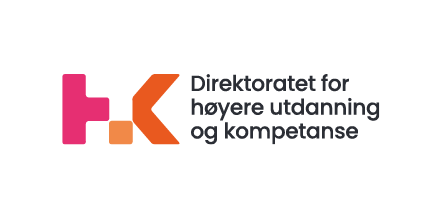Religious participation of persons with disabilities in Java, Indonesia: An explorative study
DOI:
https://doi.org/10.21776/ub.ijds.2020.007.02.07Keywords:
accessibility, accommodation, disability discourse, religious leaders, religious activitiesAbstract
This descriptive qualitative study aims to explore the main physical and social barriers to accessibility of religious sites, services, and activities for people with physical disabilities in Indonesia and subsequently aims to explore possibilities to enhance their religious participation. A total of 28 interviewees participated in this research i.e., 16 self-indicated as Muslims and 12 as Christians. Among the male participants (n=16) were 10 Muslims and 6 Catholics, and among the female participants (n=12) were 6 Muslims and 6 Christians. Interviews and physical audits suggest serious need for improvements in accessibility and accommodation going to and within the establishment. Although majority of disabled persons interviewed for this study regularly participate in religious activities, they also notice that their basic needs and concerns are not being treated as priorities. Discourse on disability issues should be initiated and developed to create inclusive religious atmosphere.
References
Adioetomo, S. M., Mont, D., & Irwanto. (2014). Persons with disabilities in Indonesia: Empirical facts and implications for social protection policies. Jakarta.
Armitage, C. J., & Christian, J. (2003). From attitudes to behaviour: Basic and applied research on the theory of planned behaviour. Current Psychology, 22(3), 187-195.
Bazna, M. S., & Hatab, T. a. (2005). Disability in the Qur'an : The Islamic alternative to defining, viewing, and relating to disability. Journal of Religion, Disability & Health, 9(1), 5-27.
BCA. (2013). Code on Accessibility in the Built Environment 2013, (1), 1-5.
Bella, A., & Dartanto, T. (2016). A bad luck: People with disabilities and poverty in Indonesia. Jakarta.
Bloom, D. E., Cafiero, E., Jane-Llopis, E., Abrahams-Gessel, S., Bloom, L. R., Fathima, S., others. (2012). The global economic burden of noncommunicable diseases. Program on the Global Demography of Aging.
BPS. (2011). Nationality, Ethnicity, Religion, and Daily Language of Indonesian Population.
Bruinessen, M. Van. (1996). Islamic state or state Islam? Fifty years of state-Islam relations in Indonesia. Indonesien Am Ende Des 20. Jahrhunderts., 19-34.
Chaim, V. R. (2007). Disability in Islamic Law. Islamic Law and Society (Vol. 17).
Creamer, D. (2006). Theological accessibility: The contribution of disability. Disability Studies Quarterly, 26(4).
Creamer, D. (2009). Disability and Christian Theolory.
CRPD. (2016). First Report of the Republic of Indonesia on the Implementation of the
United Nations Convention on the Rights of Persons with Disabilities.
Fachrudin, A. A. (2015). New Leader of Ulama Council must end Sectarianism. The Jakarta Post.
Fox, M. H., Krahn, G. L., Sinclair, L. B., & Cahill, A. (2015). Using the international classification of functioning, disability and health to expand understanding of paralysis in the United States through improved surveillance. Disability and Health Journal, 8(3), 457-463.
Ghaly, M. (2008). Islam and Disability: Perspectives in Islamic theology and jurisprudence. Leiden.
Ghaly, M. (2016). Disability in the Islamic tradition. Religion Compass, 10(6), 149-162.
Gray, D. E. (2013). Doing research in the real world. Sage.
Gutting, G. (2014). How does Islam relate to Christianity and Judaism? The New York Times.
Hammel, J., Magasi, S., Heinemann, A., Whiteneck, G., Bogner, J., & Rodriguez, E. (2008). What does participation mean? An insider perspective from people with disabilities. Disa-bility and Rehabilitation, 30(19), 1445-60.
Hasnain, R., Shaikh, L. C., & Shanawani, H. (2008). Disability and the Muslim Perspective: an Introduction for Rehabilitation and health care providers. United States. Retrieved from http://cirrie.buffalo.edu/culture/monographs/muslim/#s2g
Hirani, S. P., & Newman, S. P. (2005). Patients' beliefs about their cardiovascular disease. Heart (British Cardiac Society), 91(9), 1235-9.
Indonesian Disability Persons' Organizations. (2017). Joint Stakeholders' Submission on the Rights of the Persons with Disabilities. Jakarta.
International Labor Organization. (2013). Inclusion of People with Disabilities in Indonesia, (January), 1-4. Retrieved from
JICA. (2002). Country profile on disability of Indonesia. Human Development, (March), 1.
Kimchi, J., Polivka, B., & Stevenson, J. S. (1991). Triangulation: Operational definitions. Nursing Research.
Krahn, G. L., Walker, D. K., & Correa-De-Araujo, R. (2015). Persons with disabilities as an unrecognized health disparity population. American Journal of Public Health, 105(S2), S198-S206.
Kusumastuti, P., Pradanasari, R., & Ratnawati, A. (2014). The problems of people with dis-ability in Indonesia and what is being learned from the World Report on Disability. American Journal of Physical Medicine & Rehabilitation, 93(Suppl), 63-7.
MacKinlay, E. (2008). Disability and Spirituality.
Marshall, M. N. (1996). Sampling for qualitative research. Family Practice, 13(6), 522-525.
Miles, M. (2002). Some Influences of Religions on Attitudes Towards Disabilities and People with Disabilities. Journal of Disability, Religion and Health, 6(2-3), 117-129.
Mor, S. (2006). Between charity, welfare, and warfare: A disability legal studies analysis of privilege and neglect in Israeli disability policy. Yale Journal of Law and the Humanities (Vol. 18).
Morfit, M. (1981). Pancasila: The Indonesian State Ideology according to the New Order Government. Asian Survey, 21(8), 838-851. https://doi.org/10.1525/as.1981.21.8.01p0298d
Muryanto, B. (2017). NGOs question the govt's commitment to disability rights law. Jakarta Post. Yogyakarta.
Nouvellet, H. (2014). Conduct an accessibility audit in low- and middle-income countries.
Otieno, P. A. (2009). Biblical and Theological Perspectives on Disability: Implications on the Rights of Persons with Disability in Kenya. Disability Studies Quaterly, 29(4).
Perlez, J. (2003). Saudis quietly promote strict Islam in Indonesia. The New York Times.
Priebe, J., & Howell, F. (2014). A Guide to Disability Rights Laws in Indonesia. Jakarta.
Rafferty, J. (2005). Curing the stigma of leprosy. Leprosy Review, 76(2), 119-126.
Rahim, A. A., Samad, N. A. A., Rahim, C. R. C., & Badhrulhisham, A. (2014). Providing accessibility for persons with disabilities in Malaysian existing mosques. Journal of Archi-tecture, Planning & Construction Management, 4(2).
Rispler-Chaim, V. (2007). Disability in Islamic Law. Haifa, Israel: Springer.
C. (2007). Barriers to improvement of mental health services in low-income and middle-income countries. The Lancet, 370(9593), 1164-1174.
Scherpen, B. (2017). Enjoining right, forbidding wrong: the MUI and Indonesian Islam. Strategic Review.
Schirrmacher, C. (n.d.). Christian Und Muslim Prayer, 1-4.
Schumm, W. R., & Kohler, A. L. (2006). Social Cohesion and the Five Pillars of Islam : A Comparative Perspective. American Journal of Islamic Social Sciences, 23(2).
The Jakarta Post. (2016). President Jokowi to officially declare Juni 1 Pancasila Day.
United States Catholic Conference. (1978). Pastoral Statement of U.S. Catholic Bishops on People with Disabilities. Retrieved from https://www.ncpd.org/views-newspolicy/policy/church/bishops/pastoral.
Vatican Radio. (2016). Church shines spotlight on issue of disability with statement. Vatican Radio.
Widagdo, C. (2016). Creating a fairer Indonesia for People with Disabilities. Global Public Policy Watch.
World Health Organization. (2002). Towards a Common Language for Functioning, Disability and Health ICF. International Classification, 1149, 1-22.
World Health Organization. (2003). ICF Checklist for International Classification of Functioning, Disability, and Health, (September), 1-15.
World Health Organization. (2006). Neurological disorders: public health challenges.
Yau, M. K. sang, McKercher, B., & Packer, T. L. (2004). Traveling with a disability More than an Access Issue. Annals of Tourism Research, 31(4), 946-960.
Downloads
Published
How to Cite
Issue
Section
License
Copyright (c) 2020 Sara Franssen, Irwanto Irwanto, Huib Cornielje

This work is licensed under a Creative Commons Attribution-NonCommercial 4.0 International License.















